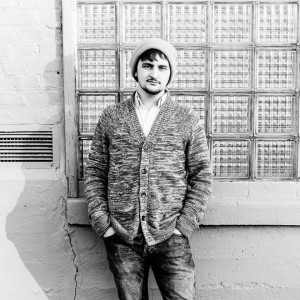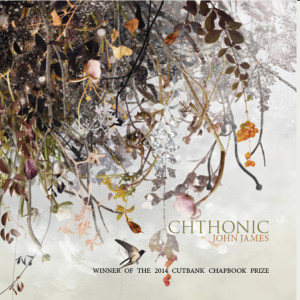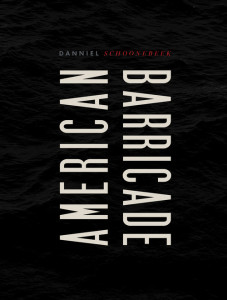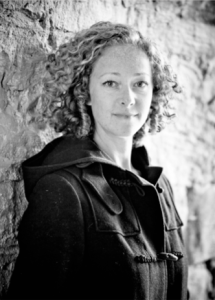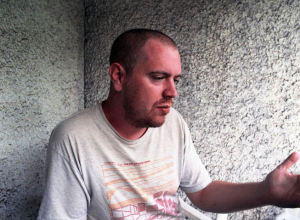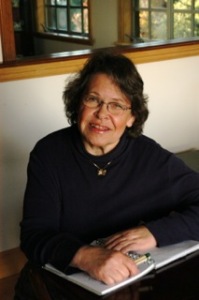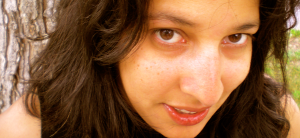The Black Helicopters Above Us: A Conversation with David Allan Cates
by Kylie M. Westerlind
David Allan Cates is the author of Hunger In America, X Out Of Wonderland, Freeman Walker, Ben Armstrong’s Strange Trip Home and Tom Connor’s Gift.
It’s 1:00pm on a Monday in Missoula, Montana. I sit down with local writer David Allan Cates at the Buttercup Café. He orders a cup of soup, and I sip some herbal tea. He informs me that fifteen minutes ago he was in his garage with the writer, and his good friend for decades, Pete Fromm. They were dressing deer they hunted over the weekend. Over the next hour, we discuss his writing life among many other things, like the idea of not naming puppies, the writing demons that plague us, dreading the approach of black helicopters, the fight against becoming sad and disappointed old people, and the constant self-doubt that comes with wanting to be a writer.
Kylie M. Westerlind: You know Kevin Canty?
David Allan Cates: Oh, yeah! (crunches on mini baguette)
KMW: He’s big on getting us to resist writing just a singular character. And I’m wondering what your response to that is—because much of Tom Connor’s Giftis Janine, alone, in a cabin, reflecting…
DAC: Pathetic!
KMW: (laughter) No, I think it’s—I write a lot about women in their aloneness, with that aloneness, and I think that’s what struck me about your novel—I think that’s what made the prose read as so female to me, was the reflection there, being alone in and outside the body. But we are stuck with a singular character for much of the story—what’s your response to that? Should we resist those narratives?
DAC: (puts down soup spoon with a clatter) It’s such good advice! As a teacher I’ve given that advice a lot of times. What happens in the story? If someone sits at a café table and thinks…? No, it’s gotta be more than that. So, I know that—I’m trying something that is hard. I know I’m walking a tightrope. (picks up soup spoon) Two things: I wrote a present tense, third-person novel that takes place in one night, but a lot of it was a guy in his cab. He’s the main character. There were others, but they come and go in the novel. But I knew the only way you could have a reader stay with a guy in a cab was if he had an interesting mind. That’s the first thing. (spoons soup onto the mini baguette (I’ve never seen someone eat soup this way)) He better have an interesting mind, and not only that, but, second thing, what’s at stake must be clear. We will follow somebody through a lot of inaction if there’s something clear at stake. If I’m standing at the edge of a cliff having thoughts—you’re going to be interested in my thoughts. Right? Will I jump? Will I do it? Janine was so out there, in an unsustainable place—
KMW: And she can’t leave. The physical threat isn’t as much as the emotional threat, at least for me. I didn’t care as much about the bear, it served as that underlying threat. More so, what are the emotional threats out there that keep her in the cabin?
DAC: Right, and also, she’s just not quite right. She’s not okay. And so, is she going to be okay? I know she can’t stay in this cabin forever. What will take her out of it? That’s the setup from the beginning. She’s in extremis, and so the more somebody is in extremis, the more patient we are to wait for something to happen. I remember there’s a part in that book where there’s a knock on the door, when the man brings the puppy back. I remember writing the chapter before that, thinking that somebody has to come here. I just wrote there’s a knock on the door.
KMW: (laughter) “Someone knocks on the door!”
DAC: I had to! I took her being the singular character as far as I could, as far as I was capable, before there had to be a knock on the door, and boom, there’s another person in the story. Not an important one, but another person. It’s a tricky thing to write a book in which there’s a lot going on in the mind of the character and not that much for the exterior of a character. So easy to get wrong. But it’s worth trying. There are rules about having a singular character, and they have to show a clear predicament of the character, making the reader more patient to sit with nothing for a while.
KMW: I love that. The more extreme the character’s mind, the more patient we are to sit with the character and unravel their mind. So, more from a craft perspective—can you describe your writing process for starting this novel? How long did you spend in that cabin that sparked the novel?
DAC: That was about breaking an inertia that I had going on in my life. As you know, writing is hard. It’s like, why the hell should I do it today? I knew I had to get started on another novel, and I had an idea about a long love, a love that spans decades. I thought I’ll go away to this friend’s cabin and I have to come back with a first chapter. I could have done it at home, but in those weeks it hadn’t happened. I knew if I went away, I had to come back with something or else I’d feel like a total shit.
KMW: (laughter) And, I have nothing!
DAC: Could you imagine? Going away for a week, and nothing! But so, I came back with a first chapter of a widowed doctor out at a cabin, and I knew there would be a bear outside, that she would have a puppy dog inside. I knew that there was more than just the relationship with her husband. I had lost a friend in a similar way that she lost Tom Connor—suicide. The book became more than I thought it would be. She was in an extreme position—one that wouldn’t last. I’d set up the dramatic questions: is she going to go home or not? Is she going to be okay or not? Is the bear going to get her or not? Just clear, basic, and uncomplicated questions. I knew I had a novel. I didn’t know what it would turn out to be. I didn’t know it would be about grief as much as it was. That cabin experience broke my inertia. I came back with something. I remember writing for about six months, and I was writing about anything that occurred to me. About six months into it, I told myself to stop fucking around. I knew where this book had to go. I was screwing around by writing a few hundred words a day about this or that, and I was avoiding telling the story. From that first chapter, I had to push and tell the story. I had a very intense four to five months after that telling the story, finishing the draft. It took a full year to get a draft. It was a better book, well, bigger, than I thought it would be.
“I don’t want to be a person whose losses have reduced them. I want my losses to expand me.”
KMW: So, you spent about a week out there and wrote a chapter?
DAC: Yeah.
KMW: Was it hard, once you were back to the “real world,” to bring your writing self back to that head space?
DAC: No, no.
KMW: You found that voice. Her voice.
DAC: I found her voice. And that voice really scared me. I anticipated a lot of the feelings people have about men writing a woman’s voice. People, first of all, just saying, “Wow, you made her sound like a woman!” Or women who come up to me and say, “You know, a woman would never do that, they would never not name a puppy.” Ah! “A woman would never do this, she wouldn’t be able to look at a bear and tell it’s female.” What? Why did these things bother them?
KMW: It’s hypocritical because we’re incongruent as humans—
DAC: Right.
KMW: And so, when readers find incongruities about characters then they latch onto them as universally untrue, like they’re exposing something.
DAC: And they try to convince me—“me or none of my friends would never not name a puppy.”
KMW: My cousins never named their cat, and they’ve had it for years. They call it all sorts of things.
DAC: I ran that manuscript by women ER docs, women friends who are good readers, and I didn’t get those sorts of complaints about Janine’s voice. Because you can, you can fuck it up and write something really dumb, and there are readers out there who tell me they can’t wait to read a man writing a woman’s point of view because they’re waiting to see him fuck it up. I knew I set up a high hurdle—always asking myself, why did I do this? So I was cringing a bit at where I was, but I did it. I knew I set myself up, and I was afraid. But I didn’t feel like I wasn’t capable of imagining any character I wanted to. I wasn’t trying to write aboutwomen. I was writing Janine McCarthy. I knew I could do that. My publishing history has been one of decline—not because my books have gotten worse but because my publishers have gotten worse. I wanted to write something that would gain me readers after that decline. This book didn’t really do that, but this was part of my worry…it’s hard enough to keep your head above the water in this business anyway and now I’m writing a voice like this, but it’s really a small thing in the course of writing. You have that thought for a little bit, but you just—
KMW: Trust it.
DAC: Right. There’s a million reasons, or demons, that burden a writer.
KMW: I’ve definitely had an experience in my short writing life where people read my work and assume it’s a male mind because it’s so reflective. I think that’s so interesting how people read minds a certain way. I wrote it for Pete’s class, a story about a woman fur trapper, and the story is really internal, but I did have a few comments where people wanted to argue with me about it being a woman’s point of view. Women don’t do that—they don’t kill animals for fur, and I just think, what do you mean? They absolutely can. Why are you getting stuck on that, of all things? Why does that bother you so much?
DAC: And as writers we always come up with ways we might fail, or even if we succeed, we won’t please anyone, ways of trying hard but not having the talent to do it. There are a hundred writing demons, and that one’s mine. Once I get started on a project though, those demons don’t bother me. The story and the characters become so compelling, and the world becomes a place I want to go into and make sense of. Writing is so much about making sense of this world you’ve come to create. Tom Connor’s voice was a voice of that friend who killed himself. My friend was never in Central America, he didn’t have Tom Connor’s life, but he had the same tragic arc, so I know in writing that I was working through my own grief and sense of debt that I felt. He’d given me a lot in his life, and after his death I’d been angry at him and I’d forgotten the things he’d given me. That’s Janine’s journey, in a sense. It wasn’t my intention that it would become part of the book. Janine’s movement from being angry at Tom Connor to her heart opening to everything he’d given her—that did mimic my own journey at being angry at my friend and then understanding the love he’d given me in his way during his life.
KMW: I’ve read a lot about you, so I may be confusing which interview was which. It might have been an essay you wrote, actually… “Finding the flow”?
DAC: Oh, about coming to grad school?
KMW: You wrote about how novels address the big fears and shames of our lives. Can you say more about that?
DAC: In that essay, I was reflecting, using the distance of time—the psychological things that drove me to write my first novel. I’ve found that true of every novel I’ve written: I can understand why I wrote it years after I wrote it. During the process, you don’t really know what’s driving you. You don’t know what demons you’re trying to purge. The demon I was purging in Hunger in Americawas the fear of dying before I did anything, before I loved anybody the way I wanted to, before writing a book. Dying before I got a chance to live. I wrote a book about a guy who doesn’t get to do those things. He dies before he gets to do anything. The question is, well, does his life have any meaning? Through writing it, I came down on the side of yes—as a way of reassuring myself. Someone else might read that book and come out the other way and think, what a waste! But, I mean, I didn’t answer it in an easy way, but I explored the question enough for me to understand that I didn’t write the book with that clearly in my mind. But that is what I can see I was doing when looking back. In this book, I can see that my writing it was about the embrace of the messy, complicated thing that is love that lasts over decades. An embrace, an attempt to embrace it because it always ends badly. People either break up or they end up dying. It never ends any way other than that. Is it worth it? What does it do to our heart? When Janine comes home her heart is bigger. My struggle as a man my age is I don’t want to be a grumpy old man.
KMW: (laughter)
DAC: I don’t want to be a disappointed, grumpy old man. That’s a common thing because life is disappointing. But I don’t want to be that. I want to keep my heart open. So maybe I wrote that book because I’m saying, this is the job. This is the job as a human being, to keep opening to the world despite all of the horrible and certain pains. It’s not a matter of if but when. Despite that certainty of death, the surety of suffering—keeping your heart open is the only thing that matters. I don’t care if I write another book. I don’t. I mean, I may tomorrow care very much, because sometimes novels are like black helicopters, they come down and land and they grab you and they say…
KMW: Get in!
DAC: Until they land though, I’m always flipping them off, like, get out of here! And the ones that have landed, that I’ve had to do, they were always very hard. Always harder, and they cause more suffering than I wanted.
KMW: You mention in a radio show how writing long pieces exhaust you to a point of—almost disappointment? When you finish a novel do you feel a sense of success? Listening to you, it sounds a little more glum. You say…yeah, your ambition becomes “emptied” and you are completely exhausted.
DAC: It would be wrong to say that I didn’t feel a sense of accomplishment and pleasure. Especially with Tom Connor’s Gift, which is my sixth novel, there was a sense of exhaustion and almost an inability to feel anything for a long time. A real emptiness. And I tried not to panic from that, but just live with it and hold it and see what happens. The disappointment doesn’t necessarily come from writing the novel. Life is disappointing. Things sometimes don’t work out. For a writer no more or less than for anybody else. I’ve just met a lot of disappointed old people. Because life didn’t go the way they wanted. Whose life does? That’s what I mean, by the disappointment. I don’t want to be a disappointed man. A sad old man. I don’t want to be a person whose losses have reduced them. I want my losses to expand me.
KMW: You’re not diminishing but growing beyond them.
DAC: Growing, yeah. When Janine comes home, she is a wider person. Whether she can maintain that, because it’s a vulnerable place to enter your heart, enter the world, and embrace your children—that’s the journey of the book. That’s a little pep talk to me, maybe?
KMW: Do you think it’s equal for both reader and writer, these feelings—or do you think you get more out of writing it?
DAC: I don’t know what my readers get out of my writing. But when I read books that blow me away, I can’t imagine the writer gets more than I do. It’s hard to compare. I hope my readers get as much as I do. I know half of them go,this is a bunch of bullshit, and throw the book across the room. That’s just a fact. I hope my readers do get something from my books, or some of them do. Thinking about that too much, though, you can paralyze yourself. You hope your reader feels moved and happy that they read the book. That they can read it and say,Yeah, that too is the world. The world is more than I thought it was. That’s why I read.
KMW: What’s the last great book that you read, and also the last book you threw across the room?
DAC: I read Nervous Condition, which is a very good book. And then I read Things Fall Apart. Nervous ConditionI liked better. I also read Portnoy’s Complaint. I’d read it when I was younger, but reading it as a 62-year old, I found it so audacious the way he makes fun of his culture—
KMW: That’s Roth, right?
DAC: Right. Another great book I read recently was by Hanif Kureishi, called Buddha of Suburbiaabout a Pakistani-Englishman who is like the protagonist of Roth’s books, who is hypersexual, amoral almost, but you forgive him because he’s young and he’s like a green shoot rising and trying to invent himself, boldly and without fear, and criticizing everything around him. Trying to be human. I just love all those books because they do that. So, what bad book…
KMW: Or maybe, your biggest pet peeve as a reader?
DAC: Okay, mine is a writer who presents a world in which it’s super clear who to root for. Who’s good and who’s bad.
KMW: There are signposts.
DAC: Right, I have no interest in that. I only want to go into a book with the things I think are true about the world and get those things mixed up. I want to go in with whatever sense of balance and what’s right and wrong and come out thinking I’m not sure. I dislike books that have a clear sense of what’s right or wrong. And they’re often very pretty books. There was a really popular one about World War II, this German boy and this French girl. It was a sweet story, but it was clear who to root for. It wasn’t a terrible book, but it was too clear.
KMW: You didn’t enter it one way and come out feeling different.
DAC: I like to be mixed up. I like to root for a character who I might not want to sit next to. I want to go, that too is human. That’s my biggest desire in reading and writing. I want to get into someone else’s reality. I don’t know why. I don’t live in a bad reality. I like my life. What I love about literature is the opportunity to not be me, to get to be somebody who’s not me. To live more than one life. Skin bigger than my skin. I love that. That’s why I write, why I read.
KMW: I always ask my students why they read, and they can never give me an honest answer.
DAC: Kill time?
KMW: Right, and I’m like, but why? Okay, this is kind of a hard-hitting question. So, you can answer it in any way you want.
DAC: Okay. All right.
KMW: Are you happy with how your writing life turned out?
DAC: Oh god, no!
KMW: (laughter)
DAC: My publishing life, no… My writing life, yes. I’ve written the books I’ve wanted to write, and I don’t even know how. I don’t know how. I just tried so fucking hard.
KMW: When did you first feel called to write? Were you still in Wisconsin?
DAC: No. I’ll tell you that story, but I want to go back to what you said. I’m happy with the books I wrote. I don’t know how I wrote them.
KMW: I love that. It’s reassuring to hear that you don’t know how you’ve written them but they do get written.
DAC: Right? Every one was such an adventure. I was a different person by the time I finished the books. Really, a great life. The publishing part has been very difficult, full of disappointment. I have six published books, a couple dozen short stories…I don’t know if there’s any writer I know who’s published six novels and sold fewer copies than my six novels. I really don’t, and I’ve met a lot of writers. So, that’s disappointing. Kind of hoping I’d do a little better. I’m not going to lie. Your other question, when did I know I wanted to write?
KMW: Yeah, when you knew you were going to write a story.
DAC: I was a basketball player here at the university and I quit my sophomore year. I was sort of lost. I was taking a Native American studies class and I wrote a paper for that class that the teacher liked a lot and one that I enjoyed writing. So, I started thinking I could take some journalism classes. And I do. But I get a D in the class.
KMW: Oh, no! In the journalism class?
DAC: First two classes, D’s. I didn’t know how to write a sentence! I wasn’t very well read. I couldn’t put a sentence together. A friend of mine suggests we go to Africa. Okay! We flew to Africa, and I had a transformative experience there.
“If you feel inept, if you feel incompetent, if you feel tired of turning something in that you think is really good and seeing that it isn’t yet, and you feel blind and stupid—if you think that is because you are blind and stupid, you’re wrong. You’re doing the job of being a writer, and to be a writer you have to feel those things.”
KMW: How old were you?
DAC: Twenty. Everything I thought was true about the world flipped. It was lonely. My two friends were smoking a lot of pot and so in their world while we there, and I felt alone. So in this vulnerable time, I started reading novels. I’d read, maybe, ten novels through high school. I don’t even know if I read a novel in my first year of college. So, in those months in Africa, I read a lot of novels. They were beautiful. I could enter a world and a new geography, multiple geographies of space and morals. It made sense of things or at least put a structure around them, so you could make a judgment. I remember thinking, this is what I want to do. I knew I had to take myself seriously, then. I get one life, and I wanted to do this. It took being far from home and feeling so lost and reading novels to realize that I wanted to do it.
KMW: You talk a lot about self-doubt and seeking out advice from other writers about self-doubt. What have you learned and what would you pass on to other writers?
DAC: A capacity for self-forgiveness. I’ve walked a tightrope of taking myself too seriously or not seriously enough. Being able to forgive yourself is also trusting that you are on a great endeavor, but you don’t know to what end that will ever be. This is the scariest thing, right? The fears of your youth become lost with age. I don’t know if I have advice, but you can’t go into the coalmines without feeling it. It’s not because you are bad that you are feeling that way, but you just are feeling it. That’s the job of being a writer. I have students who I work with and I try to instill this in them the first year: the notion that if you feel inept, if you feel incompetent, if you feel tired of turning something in that you think is really good and seeing that it isn’t yet, and you feel blind and stupid—if you think that is because you are blind and stupid, you’re wrong. You’re doing the job of being a writer, and to be a writer you have to feel those things.
KMW: You just have to be uncomfortable all of the time.
DAC: You have to be uncomfortable. There’s no way to be a writer without having feelings of uncertainty. One of the things I thought I had going for me was I had the capacity to work on something that I didn’t know what it was for a long time. I had to hold things loosely and not be self-critical, to a certain extent.
KMW: Not so much that you stop.
DAC: And move forward. For a year, two years. It’s hard to work on something for a year and still not know what it is. And then when people ask what you’re working on! And I have nothing to say about it. Then they tell you about their interesting lives, and you have nothing to say about what this thing is that you’re writing.
KMW: Are you done with novels?
DAC: I’ve been writing poetry.
KMW: I find that interesting because writing poetry, to me, is really exhausting.
DAC: Two things: one is I can write for a month and have a few interesting things and I like that. Writing a novel, I never had that feeling. I can dip in and out. I like that when I have a strange thought or hear half a sentence that’s provocative, I can go home and turn that into a poem. In a novel, you’re stuck in that world. Nothing from the outside fits into it. You may take great notes, but it’s not all going to fit in. That sense of having a private work world that’s detached from my life doesn’t exist with poetry. I like that. It’s a new place to be. But…I bet I write another novel. But I’m not going to until another black helicopter lands.
KMW: (laughter) And it takes you up with it.
DAC: And if it doesn’t, I’ll be okay. And that’s the first time in my life I’ve felt that. Before Tom Connor’s Gift I felt that I had to write a novel after I’d finish one. I don’t feel that now. When I was twenty-five, if I didn’t write or read for that day, I truly felt like I was wasting my life. There were a lot of consequences for that kind of thinking. Now, I don’t feel that way. That said, the last two months I have been compiling short stories. I’ve published a couple dozen short stories, but these, they all take place in Latin America. They’re all about people in exile, with exiled lovers. They’re not tourists, but they are all outsiders in some way. I know these should be a collection. I’ve been ruthless about what goes in, about the order of them. I’ve just been starting to send them out. I’m starting to want.
KMW: (checking the time)…I’m not keeping you, right?
DAC: No, this is fun!
KMW: I’ll hang onto you for a few more questions. These are more about a sense of place. One of your novels has won an award for best fiction in the “Mountain West” and another novel won for best fiction of the “Midwest.” Do these places define you or do you grow into those places as a writer?
DAC: I’ve got one place that’s the center of my fiction: going home. Almost all of my characters are in some sort of exile and the dramatic question is about whether they will go home or not. The west to me, or the “West,” is just a word made up by white people from the other part of the continent who then treated it as a vacuum, where no other stories could exist there besides those of white settlers, and the west continues to be a vacuum in the American imagination. Out of that history, it’s become the place where people can come and tell their story. I never consider myself a “western” writer. The setting might suggest it, with stories taking place in frontier towns or gold-rush country. People come from all over with their dreams and for the most part their dreams are not fulfilled. I’m not a guy who tries to define this western place—my canvas has always felt bigger. (True home for me is a house on a farm in Wisconsin.) Sometimes we have someone we fall in love with first and that love might not last. There’s a certain purity to that love because it doesn’t last long. So, I think if you fall in love with a piece of ground, it’s home. Sometimes you can love other pieces of ground beautifully. You can love a lot of places. And you can feel varying degrees of that home there, but to me there’s always a place underneath it. I’ve loved living in Montana, so why do I write about exiles? I don’t know why. I don’t try to. I was with Pete Fromm this morning. He’s been a good friend for decades. Pete writes domestic stories, and they all take place within the family. We are similar writers, coming into writing in similar ways. But I write about exile, and Pete writes about finding ourselves within family. We don’t know how or why. We didn’t decide this.
KMW: Different helicopters, I guess.
DAC: Different helicopters, right.
KMW: I thought it was odd that you’ve received awards for best fiction of…whatever place…it makes it sound like the place is your identity rather than a character’s. And writing out of that place, what does it say about us?
DAC: Perhaps it has more to do with the award-giver than the writer. What they imagine should come out of that place…Do I have blood here? (points to just above the ear)
KMW: …A little bit! I think so! It’s not yours, right?
DAC: It’s mine!
KMW: It is?
DAC: We had the deer hanging, and it fell, and the antler hit me there. (presses fingers against side of head) Ow! It just hurt when I did that.
KMW: Oh!
DAC: I forgot about it until I put my hand there and felt my hair was crusted.
KMW: This is the most violent interview I’ve been in!
DAC: Make sure you say, “His head was bleeding from a buck antler wound incurred earlier this morning when the deer he was carving fell from the rafters!”
KMW: Are you feeling okay? You’re lucid? Everything you’ve said is true?
DAC: Totally lucid! A glancing blow. Though it is a little sore.
KMW: Wow, okay! Well, any last words? …That sounds more threatening now that your head is bleeding.
DAC: No, it’s been a pleasure. What year are you in the program?
KMW: I’m in my second year.
DAC: So, you took Pete’s workshop.
KMW: Yes!
DAC: He liked teaching there. He said people were talented.
KMW: What are you and Pete up to next? Do you ever write together?
DAC: No. I had dinner at his house last night, but we didn’t write. What are we up to next? He’s gotta finish carving up his deer in my garage! No, but …we’ve had an adventure—our first books came out at the same time. We knew each other as undergrads.
KMW: Really? How did you meet? Were you both on the basketball team?
DAC: He was on the swim team.
KMW: Does he still swim at 3am?
DAC: No, I don’t think so. I think he swims in the middle of the day.
KMW: Oh! He writes at 4am, that’s what he does.
DAC: He’s always been a morning person.
KMW: I have to ask, did he have the mustache back then?
DAC: You know, I don’t remember. We both—coincidentally…I used to wear this long trench coat. Before I even knew Pete, I saw him on campus and he had long blond hair and he wore this trench coat. I thought, there’s another guy with a trench coat! And I didn’t know who he was! But we got to have mutual friends. I came back to Missoula from the farm years later. There are other college friends in town and I go to the Union Club to meet them. Pete’s down there. We end up sitting next to each other at the bar. “What’ve you been doing, Pete?” “Well, I’ve been working for the Park Service and I’ve been writing.” He’d been writing! I’d been writing in Central America. Who knew. So we exchanged a lot of stories. We sold our books around the same time and went on a book tour together.
KMW: You’re like writing twins.
DAC: Right! We’re writing twins.
David Allan Cates is the author of five novels, and a collection of poetry. His novels are Hunger In America, a New York Times Notable Book, X Out Of Wonderland and Freeman Walker, both Montana Book Award Honor Books, and Ben Armstrong’s Strange Trip Home and Tom Connor’s Gift, both of which won a Gold Medals for Best Fiction in the independent Book Publishers Book awards. Cates is the winner of the 2010 Montana Arts Council’s Innovative Artist Award and his short story, “Rubber Boy,” (Glimmer Train 70) is a distinguished story in the 2010 Best American Short Stories. His stories and poems have appeared in numerous literary magazines, and his travel articles in Outside Magazine and the New York Times Sophisticated Traveler.
Kylie M. Westerlind was born and raised in Reno, Nevada, where she received her B.A. in English at the University of Nevada, Reno. She is currently an MFA candidate in fiction at the University of Montana. Her fiction has appeared in Carve Magazine.

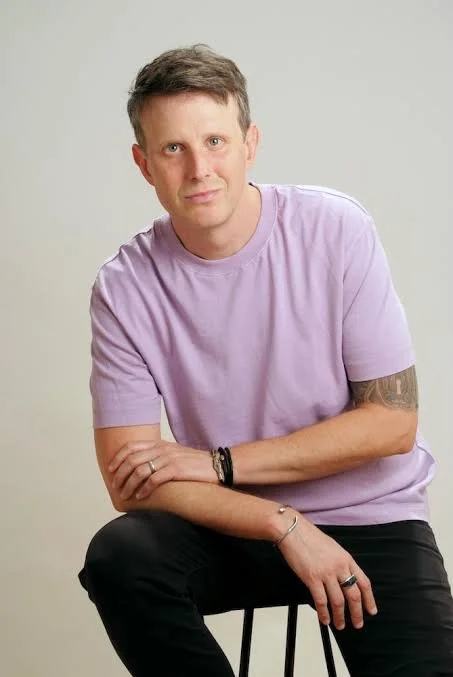








































































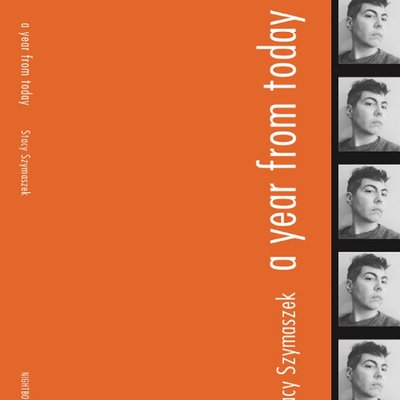





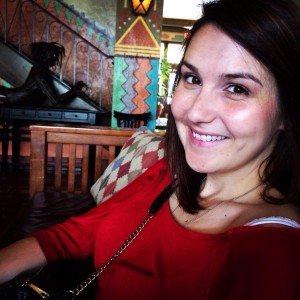
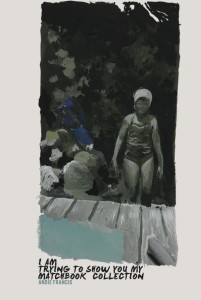 "Matchbook?" Who do you read? What have you been reading lately? Do you generally read while in the midst of a project?
"Matchbook?" Who do you read? What have you been reading lately? Do you generally read while in the midst of a project?
